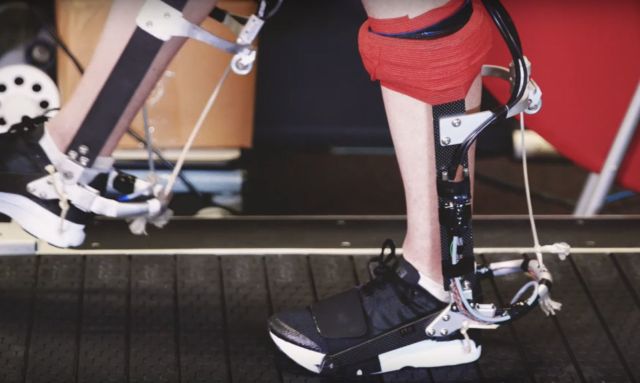
Stanford
Ankle exoskeletons could help you run longer and faster and even serve as a new mode of transportation,according to a team of Stanford University engineers. The engineers tested a motorized exoskeleton rig that attaches around the ankle and foot and found that it made running 15 percent easier. They explained that when the exoskeleton's motor is switched on,it reduces the energy cost of running and allows the user to run longer than they're usually capable of. The device can also boost a runner's speed by as much as 10 percent.
Here's how the exoskeleton works: Its motors tug a cable running through the back of the rig from the heel to the calf. That pulls the foot upward during the toe-off,extending the ankle at the end of every step. Team member and Stanford grad student Delaney Miller said:
"Powered assistance took off a lot of the energy burden of the calf muscles. It was very springy and very bouncy compared to normal running. Speaking from experience,that feels really good. When the device is providing that assistance,you feel like you could run forever."
The team also tried to make the exoskeleton mimic the movement of a spring,since our legs behave much like one when we run. But that surprisingly made running harder for the testers.
The engineers believe that the ankle exoskeleton and similar technologies could be used for various applications. Guan Rong Tan,another team member,suggested that in the future,"you could get off a bus,slap on an exoskeleton,and cover the last one-to-two miles to work in five minutes without breaking a sweat." It could also help you run alongside more athletic friends who may be used to seeing you give up halfway through.












 加载中,请稍侯......
加载中,请稍侯......
Comments